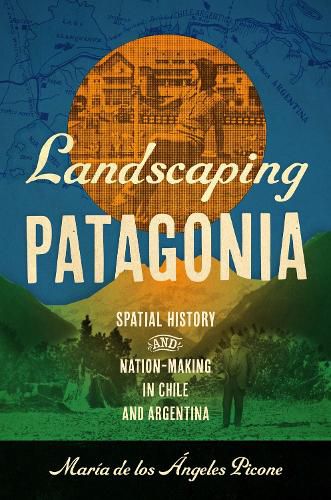Readings Newsletter
Become a Readings Member to make your shopping experience even easier.
Sign in or sign up for free!
You’re not far away from qualifying for FREE standard shipping within Australia
You’ve qualified for FREE standard shipping within Australia
The cart is loading…






In late nineteenth-century Latin America, governments used new scientific, technological, and geographical knowledge not only to consolidate power and protect borders but also to define the physical contours of their respective nations. Chilean and Argentine authorities in particular attempted to transform northern Patagonia, a space they perceived as "desert," through a myriad of nationalizing policies, from military campaigns to hotels. But beyond the urban governing halls of Chile and Argentina, explorers, migrants, local authorities, bandits, and visitors also made sense of the nation by inhabiting the physical space of the northern Patagonian Andes. They surveyed passes, opened roads, claimed land titles or leases, traveled miles to the nearest police station, rode miles on horseback to escape the police, and hiked the landscape. Maria de los Angeles Picone tells the story of how people living, governing, and traveling through northern Patagonia sought to construct versions of Chile and Argentina based on their ideas about and experiences in geographical space in the late nineteenth and early twentieth centuries. By repositioning the analytical focus from Santiago and Buenos Aires to northern Patagonia, Picone reveals how a wide array of actors, with varying degrees of political, economic, and social power, assigned distinctive--and sometimes conflicting--meanings to space and national identity.
$9.00 standard shipping within Australia
FREE standard shipping within Australia for orders over $100.00
Express & International shipping calculated at checkout
In late nineteenth-century Latin America, governments used new scientific, technological, and geographical knowledge not only to consolidate power and protect borders but also to define the physical contours of their respective nations. Chilean and Argentine authorities in particular attempted to transform northern Patagonia, a space they perceived as "desert," through a myriad of nationalizing policies, from military campaigns to hotels. But beyond the urban governing halls of Chile and Argentina, explorers, migrants, local authorities, bandits, and visitors also made sense of the nation by inhabiting the physical space of the northern Patagonian Andes. They surveyed passes, opened roads, claimed land titles or leases, traveled miles to the nearest police station, rode miles on horseback to escape the police, and hiked the landscape. Maria de los Angeles Picone tells the story of how people living, governing, and traveling through northern Patagonia sought to construct versions of Chile and Argentina based on their ideas about and experiences in geographical space in the late nineteenth and early twentieth centuries. By repositioning the analytical focus from Santiago and Buenos Aires to northern Patagonia, Picone reveals how a wide array of actors, with varying degrees of political, economic, and social power, assigned distinctive--and sometimes conflicting--meanings to space and national identity.